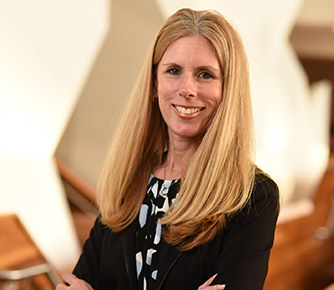As the number of COVID-19 cases grows, the pandemic is hitting certain states and populations harder than others. In the face of this crisis, we are rising up to support the needs of those left most vulnerable. Already, UnitedHealth Group has invested $50 million to support those on the front lines of the crisis, $5 million of which is dedicated to helping individuals facing food insecurity and homelessness. And our in-person resources and call centers are casting a wide net to support those who are seeing greater challenges because of this event.
UnitedHealthcare Community and State’s dedicated housing navigators and specialists have been working nonstop to make sure that local homeless shelters and communities are able to support individuals who might otherwise be left vulnerable on the streets. This team is also working to help individuals isolate if they have tested positive for the virus, stocking shelters and homes with personal hygiene supplies and helping individuals find temporary housing.
We’re committing to these efforts across the nation as we focus on serving the needs of the Medicaid community, one person at a time. And we’re continually hearing about time-sensitive needs that teams have met with fast, resourceful solutions. In Wisconsin, a housing navigator on our myConnectionsTM team discovered that a local housing shelter was being closed due to COVID-19, leaving 45 individuals without shelter or food. The team was quick to act, working all weekend to make sure these individuals would be fed as they took temporary shelter in a motel.
Beyond supporting those facing homelessness, we are dedicating attention to other vulnerable Medicaid members, including seniors and those who may be dually eligible for both Medicaid and Medicare. In the past few weeks, we have reached out to approximately 50,000 at-risk members to make sure they have food, medications and the services and equipment they need to remain at home. In some areas, we have connected with nearly 90% of these high-risk individuals. In many cases, we have provided support by identifying food banks where members can get food and working with big box stores to have food shipped directly to their homes.
UnitedHealthcare is working with others on the front lines, including state officials, to find ways to mobilize our expansive network in hot spots. New Jersey’s Department of Health recently reached out asking for support from two leaders who help run our UnitedHealthcare myConnectionsTM program, which is nationally known for supporting individuals with complex care needs. For three months, these leaders will be helping to prepare the state for an influx of hospitalizations. During that time, they will operate a lower-acuity bed setting and help individuals who are not able to be held, coordinating resources such as meals, transportation and recovery.
While we are always caring for our members, during this time of crisis we’re focused on caring for humanity as a whole. We are committed to working across our different businesses and with other organizations to solve problems for our most in-need communities.
Read more from Heather Cianfrocco
